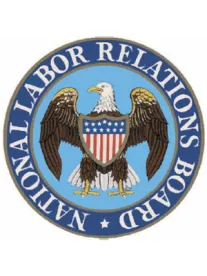Previously – In 2012, the National Labor Relations Board issued its controversial Alan Ritchey, Inc. decision, requiring employers to bargain before making discretionary discipline decisions in certain first contract situations where there was no established contract or grievance procedure. Two years later, the U.S. Supreme Court handed down NLRB v. Noel Canning, nullifying Alan Ritchey, among other NLRB decisions, when it invalidated two NLRB members’ recess appointments during that time period.
And now – In August, the NLRB reaffirmed its prior Alan Ritchey doctrine through its decision in Total Security Management Illinois 1, LLC, 364 NLRB No. 106 (August 26, 2016), requiring employers to bargain over discretionary discipline issued to newly organized employees prior to executing either a first contract or separate side letter addressing discipline.
What challenges await newly unionized employers in the face of Total Security?
Before Alan Ritchey, employers negotiating with a recently certified union regarding a first contract were able to impose discipline consistent with past practices without providing notice and an opportunity to bargain to the union. Following Noel Canning, employers again held that management right.
With Total Security, the three-member NLRB majority, led by Chairman Mark Gaston Pearce (who also chaired the Board when it issued Alan Ritchey), held an employer in those circumstances may not unilaterally impose discretionary discipline without violating Section (8)(a)(5) of the National Labor Relations Act. Rather, the Board held, such an employer must provide the recently certified union with notice and an opportunity to bargain over the potential disciplinary action(s) that will materially alter an employee’s terms of employment (for example, termination, suspension, demotion, etc.). Conversely, the Board noted this bargaining duty does not apply to discipline that does not materially alter the terms of employment for the subject employee (for example, a verbal or written warning). In so holding, the Board provided an exception to this doctrine where the employer has a reasonable, good faith belief the employee’s continued presence on the job presents a serious, imminent danger to the employer’s business or personnel.
The Total Security majority declined to order retroactive enforcement of its decision, providing – for the first time – remedies available for prospective Alan Ritchey-type violations of the Act. Moving beyond traditional NLRA remedial relief (for example, cease-and-desist orders, a requirement to bargain and the omnipresent notice-posting requirement), the majority noted make-whole remedial relief, including reinstatement and back pay, would also be appropriate.
Regarding potential back pay remedies, the Board indicated, in situations where (1) there was an Alan Ritchey violation and (2) the employer and union did bargain and later reach agreement on discipline, back pay would generally run from the date of the unilateral discipline until the date of the agreement, to the extent the agreement did not provide for such back pay. In situations where an agreement provided for less than full lost back pay and purported to settle the pre-discipline bargaining violation, such an agreement, if challenged, would be subject to the Board’s standards of review for non-Board settlement agreements. Where the parties, post-violation, bargained in good faith to impasse over the Alan Ritchey violation, back pay would run until the date of impasse.
Again, the employer’s strongest affirmative defense to such a challenge would be that the subject discipline was “for cause” under the Act. Under Total Security, however, the employer now bears the burden of the defense during the compliance phase of the unfair labor practice case to show (1) the employee engaged in misconduct and (2) the misconduct was the reason for the suspension or discharge. The General Counsel and charging party could then demonstrate disparate discipline for similar behavior or other reasons for leniency. The employer could present evidence the employee would have received the same discipline regardless of circumstances. Ultimately, and at all times, the employer now bears the burden of persuasion.
Moving forward under the new light of Total Security, employers negotiating initial collective bargaining agreements with recently certified unions should be mindful of their, revived, Alan Ritchey duty to bargain. With this NLRB decision, an employer negotiating a first contract risks an unfair labor practice determination if it does not comply with Alan Ritchey’s bargaining requirements for any discipline that could, even arguably, be seen as discretionary. Such employers should consult with in-house or outside labor counsel for specific guidance concerning the potential impacts of the NLRB’s Total Security decision on their discipline procedures.




 />i
/>i
